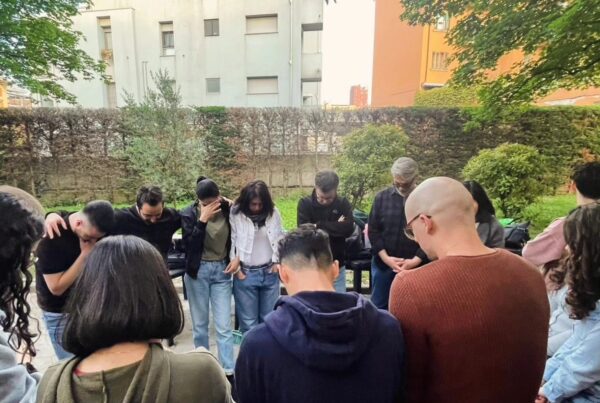In a world where we’re so often cynical about our leaders—whether political, business, or even church leadership—the fact that Jesus is our eternal, ascended, enthroned king is really good news because we can trust him.
In my recent series of articles, we’ve been considering what it means for Jesus to continue to be prophet, priest, and king even as he’s finished his work on the cross and is now seated, awaiting his return in glory at the right hand of the Father. He’s not doing nothing! At this very moment, as you read this post, his rule as king ought to bring us encouragement and confidence in our desire to plant healthy, multiplying churches around the world.
Bad leadership hurts so much because we know that’s not how it’s meant to be. God established the pattern for kings—they were to be men who would both internalize God’s law and then speak and live it out, representing God to the people as they were shaped and molded by his words (Deut. 17:18–20). When Christian leaders are overbearing or ungodly, they aren’t being like their shepherd king, whom we all follow. Undershepherds are to point to the Chief Shepherd. We can trust Jesus as our king.
The Perfect King on His Throne
But what is Jesus doing now? Two psalms in particular shape our understanding of his current situation: Psalm 2 and Psalm 110. They invite us to look behind the curtain as Jesus is raised and ascended, and as the Father crowns and installs his Son at his right hand—a place of proximity and power—until his enemies become his footstool.
Amid the mess and melee of the last 20 months (and, let’s be honest, no doubt the months to come) we can take comfort in the fact that Jesus is king now. Click To TweetNow is a time of patience, a time of waiting until all his enemies are vanquished and Jesus returns, his kingdom consummated. Remembering that reality helps us, for amid the mess and melee of the last 20 months (and, let’s be honest, no doubt the months to come) we can take comfort in the fact that Jesus is king now. He’s an authority we can trust.
What does this mean for the church? As we humbly look to our king, how does this change our view of, and our vision for, church planting?
The Church’s View of the World
As Christ’s church looks out to the world, Jesus’s ascension and enthronement are the foundation for why we want to plant churches. Because he’s on the throne, sin and death have been defeated and Satan has been vanquished. All authority has been given to our king. This means that, following the first disciples, we are to go—in his presence—and make more disciples (Matt. 28:18–20). We are to pass on the simple news of his victory to nations and neighbors, to cities and suburbs, to rural areas and beyond, into the nooks and crannies of this world.
Jesus the king is still on his throne and people still need to hear of him. This is not just our truth; this is the truth. Click To TweetAnd yet this window of news-sharing opportunity will not last forever, for one day he will return. And when he returns it will be too late. In the mess and the melee, it’s vital that we stick to our primary motivation as a network: yes, the landscape might be changing; yes, Covid may be creating new and strange strategies; yes, we may need to pivot and rethink how we do things—but Jesus the king is still on his throne and people still need to hear of him. This is not just our truth; this is the truth.
The World’s View of the Church
Looking into our churches, though, we see the rule of our ascended king lived out in practice now. As we gather each week around his Word, as he provides his church with qualified teachers, as he bestows upon his church leaders who lead like him—so, even now, we experience something of his kind, kingly rule. And the fruit of his good rule? See what Paul writes to the Ephesians:
“. . . and to be renewed in the spirit of your minds, and to put on the new self, created after the likeness of God in true righteousness and holiness.
Therefore, having put away falsehood, let each one of you speak the truth with his neighbor, for we are members one of another. Be angry and do not sin; do not let the sun go down on your anger, and give no opportunity to the devil. Let the thief no longer steal, but rather let him labor, doing honest work with his own hands, so that he may have something to share with anyone in need.” (Eph. 4:23–28, though all of chapters 4 and 5 are a beautiful portrait of this.)
The kind of countercultural church communities that our ascended king longs for ought to look like him. Communities characterised by righteousness, truth, unity, and forgiveness. Places of transformation. People of light.
And when a church looks like that? Then a cynical, watching world will know that serving King Jesus is a brilliant way to live.










